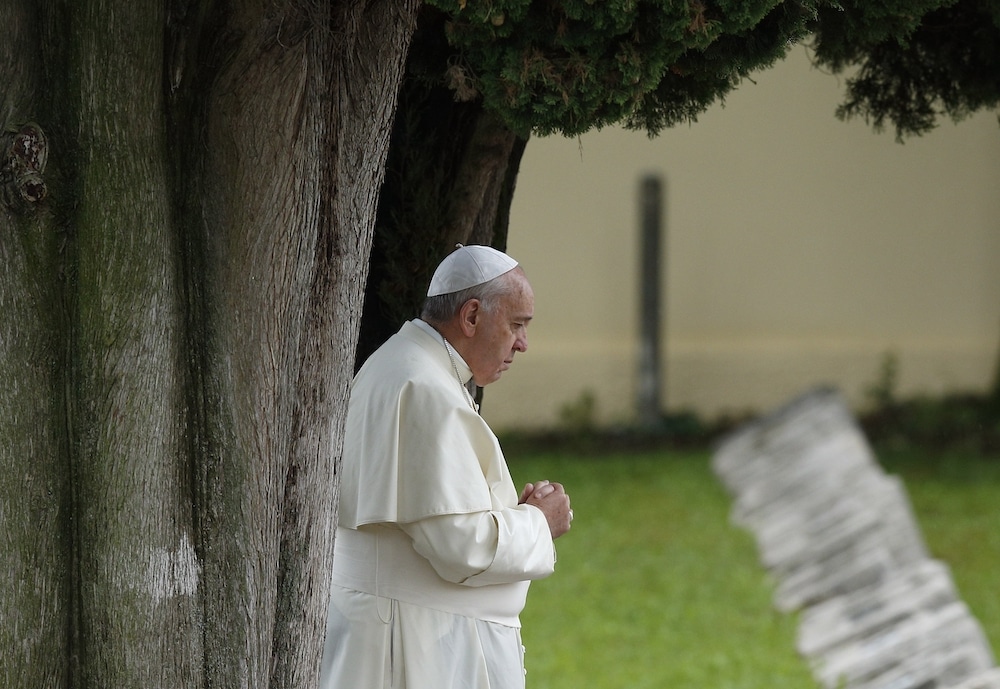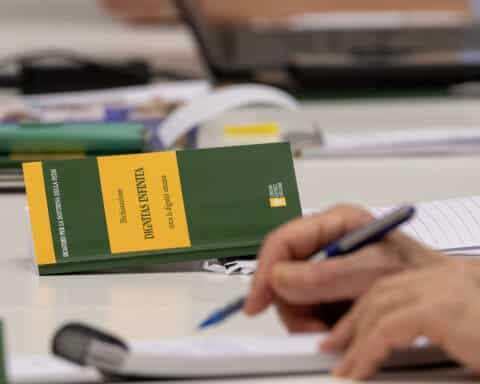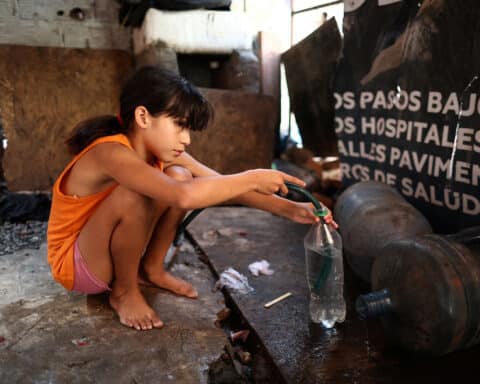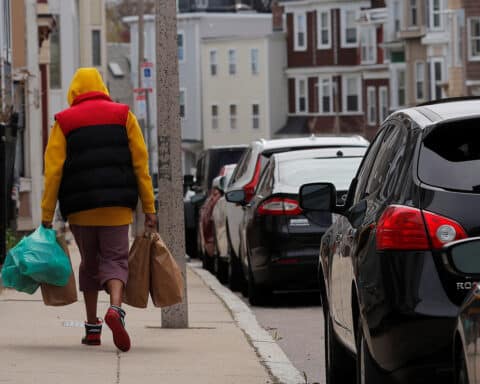In his encyclical titled Laudato Si’ (May 24, 2015), Pope Francis makes an appeal to every person living on Earth to join the conversation about how to care for our common home (cf. Nos. 13-15). The world is faced with “global environmental deterioration” (No. 3), much of which can be traced back to humanity’s misuse of nature’s resources. However, men and women can change their mindsets and behaviors by renewing their relationship with Earth according to God’s intention. God calls the human person to be a steward and caretaker of creation, not an exploiter or an undisciplined consumer. Indeed, God asks that our relationship with nature be part and parcel of our relationships with him and each other. Only then will we honor nature as the gift it was intended to be, for as the pope says in Laudato Si’, “everything is connected” (cf. Nos. 117, 91).
Context
Pope Francis was very much a part of the global conversation about climate change and the ecological crisis facing the world in 2015 (and he still is). His release of Laudato Si’ in May of that year anticipated the upcoming United Nations’ conferences on sustainable development goals in September 2015 and the Paris Climate Accord in December 2015. As a sign of the Church’s commitment to take action for positive change, Pope Francis sent a delegation headed by Cardinal Peter Turkson to the meeting in Paris.
Read more from our Church Document series here.
The Church’s concern for creation did not begin with Pope Francis, however, as he readily acknowledges. He makes a point to set Laudato Si’ within the tradition of papal teaching on protecting the environment that began with his predecessors. Pope St. Paul VI urged humanity to change its conduct so as to avoid an “ecological catastrophe” (No. 4). Pope St. John Paul II called for a “global ecological conversion” (No. 5), and Pope Benedict counseled us to remember that we belong to a world created by God to whom we hope to return: “The misuse of creation begins when we no longer recognize any higher instance than ourselves, when we see nothing else but ourselves” (No. 6).
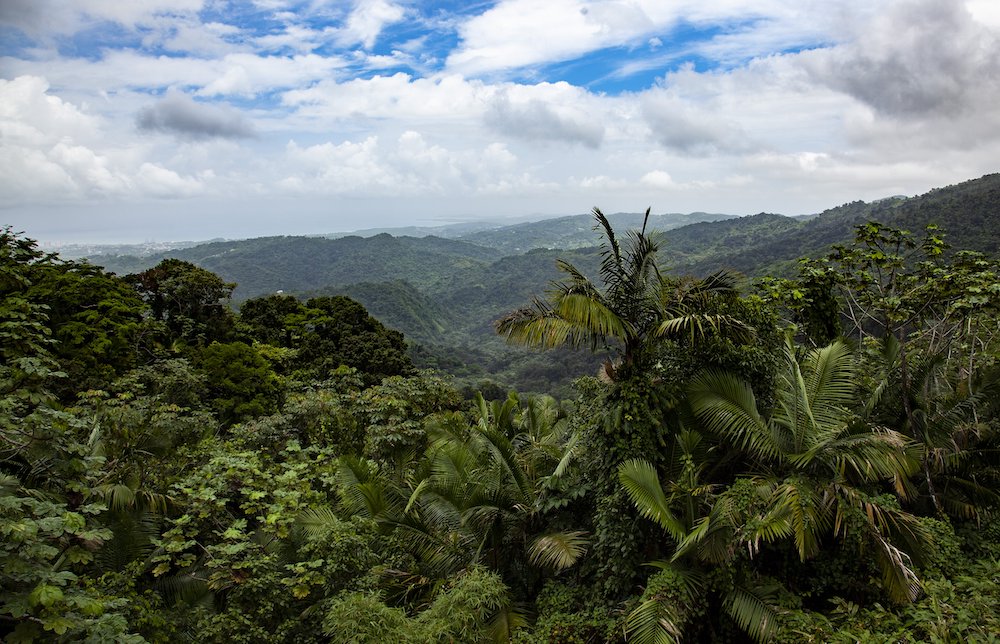
Content
In Laudato Si’, Pope Francis uses the theological method favored by Pope Leo XIII in Rerum Novarum: See-Judge-Act. Considering the ecological crisis, Pope Francis looks at the reality of the times in order to see what is happening to our common home. He then considers (or judges) the situation through the lenses of sacred Scripture and Tradition. Finally, he recommends actions that can be taken that respect “our unique place as human beings in this world and our relationship to our surroundings” (Laudato Si’, No. 15).
Pope Francis did not have to look far and wide for indications of problems with the environment. The scientific community had already warned of global warming (cf. No. 23). But the problems are also “part of people’s daily experience” (No. 20), as anyone can confirm: from trash in local parks to smog-heavy skies. Individuals and businesses throwaway materials they no longer need without care for the manner or consequences of disposal. The result is that, on every level of society, the natural and human environments deteriorate together (cf. No. 48). Neighborhoods become unlivable, water sources are contaminated, and forests and other ecosystems are depleted. These negative effects cause people to migrate and whole species of animal and plant life to be lost, and it is the poor and vulnerable who suffer the most because they do not have the resources to mitigate the damage.
In order to move toward good solutions, Pope Francis considers the current situation from the perspective of Christian faith. His focus does not preclude the involvement of other actors. Indeed, he reiterates the need for everyone to be involved: people from other faith traditions, the scientific community and political bodies. “All of us can cooperate as instruments of God for the care of creation, each according to his or her own culture, experience, involvement and talents” (No. 14). However, as Pope Francis mentions, Christianity mandates the care of creation as a duty of all Christians; it is “an essential part of their faith” (No. 64).
One tenet in particular forms a foundation for any response: “… that human life is grounded in three fundamental and closely intertwined relationships: with God, with our neighbor and with the earth itself” (No. 66). If it’s true that the human and natural environments deteriorate together, then how can we doubt that their renewal will come about as we honor these three commitments.
The first step is to acknowledge that humanity is not the owner of the world. God is the Creator, and everything belongs to him. The relationship with our neighbor requires extending to him or her the inherent dignity every human person deserves as a child of God (cf. No. 65). Each human being must be seen as a subject and “can never be reduced to the status of an object” (No. 81).
Moreover, a “sense of deep communion with the rest of nature cannot be real if our hearts lack tenderness, compassion and concern for our fellow human beings. It is clearly inconsistent to combat trafficking in endangered species while remaining completely indifferent to human trafficking, unconcerned about the poor, or undertaking to destroy another human being deemed unwanted” (No. 91).
Considering humanity’s relationship with the earth, which includes all other life forms, Pope Francis emphasizes that the “natural environment is a collective good, the patrimony of all humanity and the responsibility of everyone” (No. 95).
Call
If one appreciates how one’s relationships with God, neighbor and earth are connected, then one cannot fail to respond to the pope’s call to adopt a way of life that honors them. A radical change of human conduct is called for (cf. No. 4); human beings cannot simply use the world and each other as objects or fail to consider the consequences to life here and now, as well as in future generations.
Pope Francis points to the Church’s sacramental economy as a model for human action. The sacraments, which Christ gave to his Church, use the material of this world as the means of encounter with God. The Eucharist especially demonstrates the goodness of Earth even as it points us to heaven (cf. Nos. 233-237). We are here only for a brief time, but how we live has eternal consequences.
Action can take place on the individual and corporate levels. What is needed, first and foremost, is a change of heart that recognizes our interconnectedness with everyone and everything on earth. Instead of participating in the throwaway culture, one can adopt simple practices that make an impact: “avoiding the use of plastic and paper, reducing water consumption, separating refuse,” etc. (No. 211). We can also adopt attitudes of gratitude and generosity, giving thanks for God’s gifts and sharing them with others (cf. No. 220). Corporations and political bodies can adopt similar measures at their level: working together, they can cooperate in food production, develop renewable forms of energy, promote better management of natural resources, etc. (cf. No. 164).
There is no shortage of actions to take or solutions to embrace when one considers the problems facing the world. We also have the God-given talents and resources to bring to bear on the crisis we face. The first step, again, is a radical change of attitude, to accept that the human community does not own the earth or its resources. We are stewards, acting according to God’s plan and on behalf of people now and generations to come. The second step is to ask some fundamental questions: What kind of world do we want to leave behind? What is the purpose of life? How do our actions correspond to our dignity and the dignity of all life? Finally, we can act, using as a guide Laudato Si’, which offers many good answers to heed and put into action.
David Werning writes from Virginia.

